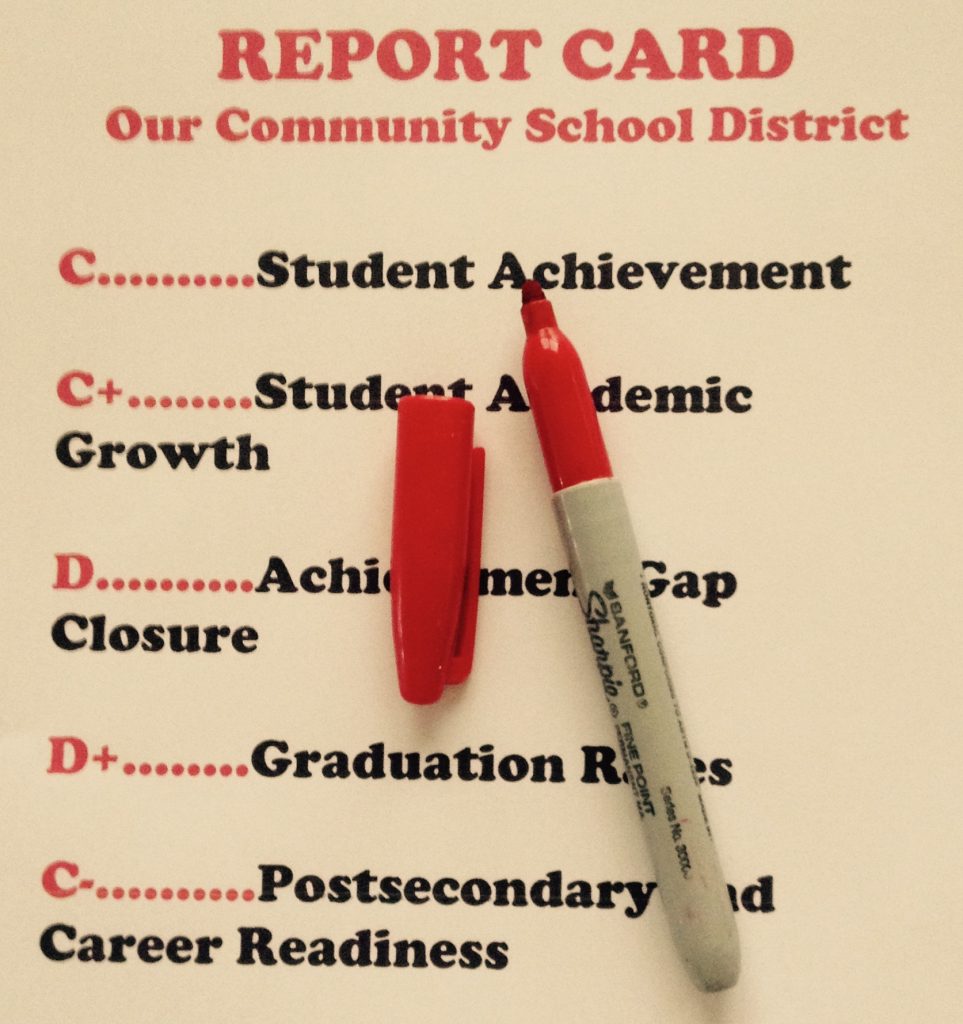
Letter grades and numbers do not define the learning of a student. Grades and numbers are arbitrary. Education and learning is complex. A grade or a number is not informative. A low grade or number discourages students. Plus, it is ineffective for learning because it causes a low-self-esteem.
On the other hand, a high letter grade or number doesn’t give the student initiative to further the learning. It doesn’t give the students a report of their capabilities or accomplishments. Students that continuously get high grades or scores, keep the focus on the grade and not on the learning. Thus, they do not focus on effort.
Grades do not encourage students to take risks in the learning process. However, since letter grades are more important than learning, students tend to cheat on tests and copy homework. This happens because they don’t have time to learn. This way, they can get better grades. Grades and numbers come with many problems. There are too many factors that go into one grade. Some of these factors are, achievement, attitude, responsibility, effort and behavior. Additionally, they look objective and exact but, are really subjective. It becomes a student against student competition.
Grades vs Learning
Regardless of a student’s good or bad grades, the learning must be meaningful. Nevertheless, grades presently have an impact on student success. Even so, they do not define the student. With grades, many students focus on pleasing parents and teachers first, on education last.
According to research by Alfie Kohn, “…kids who are graded – and have been encouraged to try to improve their grades – tend to lose interest in the learning itself, avoid challenging tasks whenever possible (in order to maximize the chance of getting an A), and think less deeply than kids who aren’t graded. The problem isn’t with how schools grade, nor does it limit students who do especially well or poorly in school; it’s inherent to grading. That’s why the best teachers and schools replace grades (and grade-like reports) with narrative reports – qualitative accounts of student performance – or, better yet, conferences with students and parents.”
Replacing grades in a school system involves a long process of training parents and teachers to accept the new method of evaluation. When it comes down to it, letter grades are simple. Although, they give no indication towards what was learned or what must still be learned. In other words, the actual meaning of an A, B, or C. It is important for everyone involved to understand what students know and what they have learned for the creation of life-long learners.



